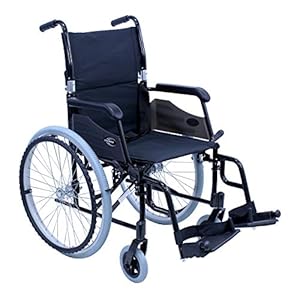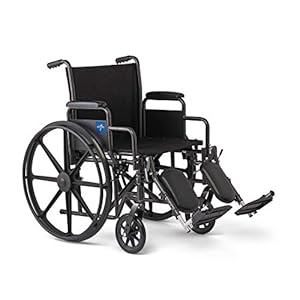
The world of medical diagnostics is continually evolving as new applied sciences and modern discoveries pave the way in which for higher, quicker, and extra correct methods to handle well being considerations. The way forward for medical diagnostics guarantees to revolutionize the way in which healthcare professionals diagnose and deal with their sufferers, and in flip, enhance total well being and high quality of life. This text delves into among the most fun developments and improvements within the area, demonstrating the unimaginable potential for medical diagnostics within the years to return.
Superior Imaging Strategies
Medical imaging strategies, similar to magnetic resonance imaging (MRI) and computed tomography (CT) scans, have lengthy performed an important function in diagnostics. Lately, developments in these applied sciences have led to the event of latest, non-invasive strategies that may present high-resolution, detailed photographs of residing tissues. These strategies, similar to useful MRI, positron emission tomography (PET), and optical coherence tomography, may allow physicians to establish illnesses or medical situations at a a lot earlier stage, enhancing affected person outcomes and offering extra focused therapies. One such instance is the full body MRI, which may present complete imaging for early detection and personalised care.
Wearable and Implantable Gadgets
The Web of Issues (IoT) has had a big influence on varied industries, and healthcare isn’t any exception. Wearable units similar to health trackers and smartwatches are already serving to people monitor their well being and offering useful biofeedback. The following step in wearable diagnostics consists of implantable units that may always measure and document information a couple of affected person’s well being. These units might help in early detection or monitoring of persistent situations, doubtlessly figuring out points earlier than they progress to severe well being considerations.
Synthetic Intelligence in Diagnostics
Synthetic intelligence (AI) has gained traction in a large number of industries, remodeling the way in which we method complicated issues. In medical diagnostics, AI applied sciences similar to machine learning algorithms allow computer systems to establish patterns and make predictions, typically with astonishing accuracy. For instance, AI has been used to create diagnostic fashions for diabetes, autism, and most cancers, which may more and more match and even outperform human diagnosticians in some instances.
Lab-on-a-Chip Know-how
Lab-on-a-chip (LOC) know-how has the potential to revolutionize medical diagnostics by integrating complicated laboratory processes into miniature, moveable units. LOC applied sciences have been used to develop diagnostic instruments for varied functions, similar to blood checks, DNA sequencing, and pathogen detection. Developments in microfluidics and nanotechnology have aided in shrinking these processes right down to chip-scale units, enabling quicker, extra reasonably priced diagnostics with minimal pattern necessities.
Genomics and Customized Medication
The speedy development in genomics research over the previous few a long time holds super potential for personalised drugs. As we proceed to uncover extra correlations between genetics and well being, it turns into potential to create individualized diagnostic and remedy plans tailor-made to every affected person’s distinctive genetic make-up. Sooner or later, using genetic testing in diagnostics might revolutionize healthcare by offering extra focused and efficient care, lowering the danger of problems and antagonistic reactions to remedies.
Biomarker Discovery and Precision Diagnostics
One other thrilling innovation within the area of medical diagnostics is the invention and use of biomarkers – organic markers that may point out the presence, danger, or development of a particular situation. Biomarker analysis has led to the event of precision diagnostics instruments that may precisely detect particular illnesses or monitor remedy progress. As analysis continues to establish and validate new biomarkers, the potential for exact analysis and prediction of illness susceptibility, development, and response to remedy will develop.
Distant and Level-of-Care Diagnostics
In an more and more linked world, distant and point-of-care diagnostics supply a promising resolution to ship healthcare to underserved and hard-to-reach populations. Telemedicine technologies, similar to smartphone apps and moveable diagnostic instruments, are being developed to facilitate speedy, cost-effective care. For instance, smartphone-based diagnostic methods are being evaluated for illnesses like HIV and malaria, which might present a extra accessible technique of figuring out these situations in resource-poor areas.
Microbiome Evaluation
The human microbiome – the various and complicated ecosystem of microorganisms residing inside and on the human physique – has captured the eye of medical researchers, because it performs an important function in total well being. Superior sequencing strategies have enabled researchers to investigate these microbial communities in better element, doubtlessly resulting in the invention of novel diagnostic biomarkers and therapeutic targets. Sooner or later, routine microbiome evaluation might develop into an essential device in diagnostics, significantly within the context of personalised drugs and the administration of persistent illnesses influenced by the microbiota.
Quantum Computing in Diagnostics
Quantum computing, an rising space of know-how, has the potential to vastly surpass the computational capabilities of classical computer systems. In medical diagnostics, quantum computing might allow the speedy evaluation of large quantities of knowledge, similar to genetic sequences, and help within the discovery of beforehand unknown patterns and correlations. This might result in breakthroughs in diagnostics accuracy and effectivity, paving the way in which for more practical, focused remedies and therapies.
Conclusion
From AI-driven functions to genomic insights and past, the way forward for medical diagnostics is brilliant and stuffed with potentialities. These developments not solely enrich the data and understanding of medical professionals but additionally promise to supply sufferers with extra correct, personalised care. As these applied sciences proceed to evolve, they maintain the potential to reshape healthcare as we all know it, resulting in improved outcomes and a better high quality of life for people worldwide.
Trending Merchandise










![[2025 Upgrade] Aotedor 30 Miles Long Travel Range, Electric Wheelchair for Adults Power Wheelchairs Lightweight Foldable All Terrain Motorized Wheelchair for Seniors Compact Portable Airline Approved](https://m.media-amazon.com/images/I/51vZJPDMrOL._SS300_.jpg)
